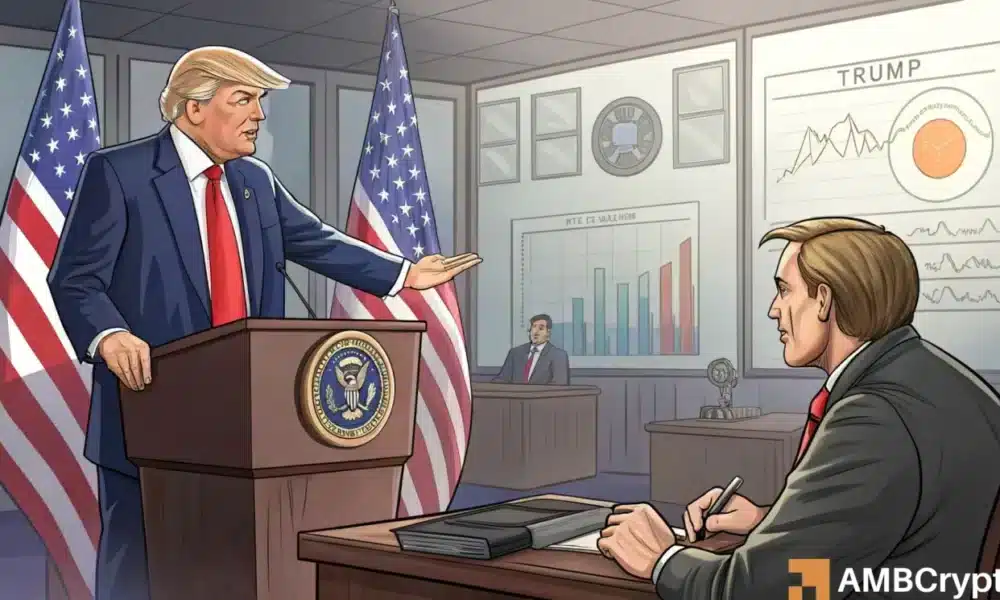On the 12th of February, Brian Quintenz revealed through X that the nomination for the leading position at the Commodity Futures Trading Commission (CFTC) came from U.S. President Donald Trump. This announcement followed earlier reports suggesting that the Trump administration would prioritize the CFTC as the main overseer of cryptocurrency regulation.
If Brian Quintenz’s nomination is approved, his known favorable stance towards cryptocurrencies could have a significant influence on crucial regulatory measures that will shape the future of digital assets and derivative markets.
Undoubtedly, his potential appointment would signify a change in the leadership landscape of the CFTC, attracting attention not only from traditional financial sectors but also from the cryptocurrency industry as regulatory frameworks adapt under a new government.
Brian Quintenz’s Perspective
In expressing his excitement about the nomination, Brian Quintenz shared his sentiments on X, stating,
Brad Garlinghouse, the CEO of Ripple, congratulated Brian Quintenz on his nomination as Chairman of the CFTC. He stressed the agency’s crucial role in fortifying U.S. capital markets, saying,
“The CFTC plays a crucial role in ensuring the US maintains the most resilient capital markets globally—congratulations @BrianQuintenz on your CFTC Chair nomination!”
A Positive Development for the Cryptocurrency Community or Otherwise?
For those not familiar, Brian Quintenz’s past involvement with the CFTC equips him with an understanding of market dynamics and cryptocurrency regulations. With a wealth of experience in financial markets and crypto policies, he is well-equipped to bring more transparency to asset categorizations and supervisory measures.
His contributions to the development of derivatives and new financial technologies, coupled with his tenure at Andreessen Horowitz (a16z), underscore his dedication to fostering innovation while ensuring adherence to regulatory standards.
Therefore, considering the CFTC’s jurisdiction over commodities and derivatives, his leadership could influence discussions surrounding whether cryptocurrencies should be recognized as commodities rather than securities.
Conversely, Garlinghouse’s statements mirror Ripple’s continued involvement in regulatory affairs. Notably, the company has been embroiled in legal battles with the U.S. Securities and Exchange Commission (SEC) regarding the classification of the XRP token as a security or not.
As events progress, it will be interesting to observe how the Trump administration reshapes the cryptocurrency landscape in the United States.

